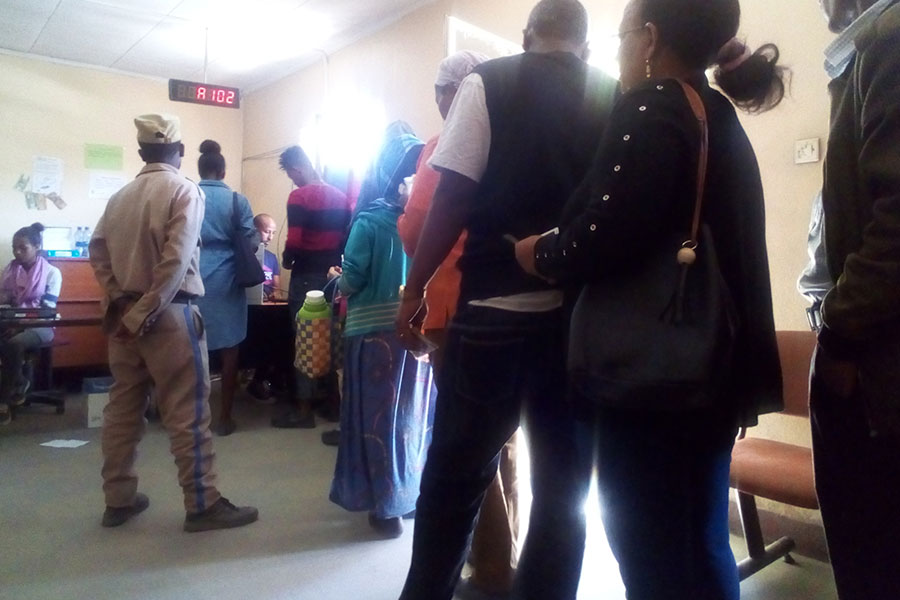
A new code that has been in the making for two years to regulate the national electricity distribution grid code has reached the final stage of legislation. A team at the Ethiopian Electric Authority has finalised the review process of the National Electricity Distribution Grid Code, which will apply to all conventional and renewable sources of energy as well as to end-users, providers and generation licensees.
The reviewed draft code is expected to be tabled to the Authority's management board after incorporation of final inputs along with the draft National Electricity Transmission Grid Code, which is undergoing consultation by the Transmission Grid Code Review Committee. The Review Committee is comprised of members from the Authority, Ethiopian Electric Utility and Ethiopian Electric Power.
Though the Authority has finalised nearly the entire process for the Distribution Code, it is still working on the Transmission Code, according to Hailu Assefa, a member of the Review Committee.
"We want to table them for approval together," he said. "It'll take another month to wrap up the inputs and get it finalised by consultants."
Both drafts are being advised by Nexant Consulting, which was founded in 2000 to specialise in consulting on energy services to utilities, energy enterprises and government partners, with funding from USAID.
The Transmission Code differs from the Distribution Code in that it deals with higher voltage and the transfer of electricity from power plants to substations. In contrast, the Distribution Code deals with voltages ranging up to 66kV, low to medium voltage that encompasses mostly households as well as some industries. It is concerned with the distribution of electricity from substations to users.
Though many actors are allowed to suggest revisions to the Distribution Code, the Authority will be the only body that can make revisions. It will also have the responsibility to produce annual reports on the performance distribution, along with a summary of changes, breaches and disputes.
The Code has undergone a consultative process that has included the Ministry of Water, Irrigation & Electricity and private stakeholders.
It was supposed to be tabled for approval to the Authority in the last fiscal year. Still, the pandemic has slowed down the process, according to Bahru Oljira, competency certification & technical regulation director at the Authority.
"Transmission and distribution are dealt with in different codes for simplicity," said Bahru.
Service providers are required to submit a five-year distribution plan, which includes forecasts and mitigation measures for losses, as well as analysis, to the Authority under the draft Code.
The overall administration of the Code is incorporated under the governance section, which mandates the establishment of the National Distribution Grid Code Review Committee. The section includes details about the Committee, such as the mandate and matters concerning the appointment and removal of members.
Providing audits and investigations; levying sanctions; reviewing codes and recommendations for amendments; making modifications and issuing guidance are among the responsibilities of the Committee. It also has the ability to create sub-committees and working groups for specific purposes and advisory roles, respectively. The Authority, which is mandated to establish the Committee, will also select the chairperson.
The application and technical requirements for connecting or modifying a connection to the distribution system, for both end-users and generation plants, and details of the connection agreement are some of the main components that the Code regulates.
The planning section of the Code deals with forecasting future demand, the impact of new facilities, the expansion of the distribution system and solutions for possible shortcomings in supply and quality. Distribution service providers are responsible for planning and implementing these in collaboration with national transmission service operators.
The operation section outlines the duties of both providers and users of the distribution network in communicating details regarding load forecast. Safety precautions make up the remainder of the section. Following this, the Code highlights metering services and their requirements; details about accuracy, equipment and data management with metering are also included.
The performance standards section features distribution interruptions, standards for the quality of power, and energy losses incurred to ensure safe and efficient operation.
Non-compliance with standards will result in penalties, suspension and revocation of licenses. The Code also lays the ground for derogation, or instances when the Authority may allow non-compliance, for both users and providers. This can happen in situations where the application of this law or any amendment becomes a source of unreasonable adjustment or when standards take time to adjust accordingly for both users and providers.
Independent experts have also been covered along with confidentiality agreements between users and providers. The latter requires express written consent by both parties to disclose information and data regarding the distribution system, though exceptions are made for lawful requirements or legal proceedings.
The Code has been eagerly anticipated for a long time, and its formation will bring predictability to the playing field, according to Mekdes Mezgebu, consultant and attorney at law at Mesfin Tafesse & Associates, a firm with expertise in power and energy.
"Private players will know what the requirements are to join the sector," she said. "This will, in turn, boost investor confidence."
PUBLISHED ON
Dec 19,2020 [ VOL
21 , NO
1077]

Radar | May 13,2023

Radar | Aug 08,2020

Radar | Feb 22,2020

Commentaries | Jun 17,2023

Agenda | Jan 12,2019

Fortune News | Sep 28,2019

Fortune News | Feb 08,2020

Radar | Aug 24,2019

Viewpoints | Nov 09,2019

Agenda | Nov 09,2024

Dec 22 , 2024 . By TIZITA SHEWAFERAW
Charged with transforming colossal state-owned enterprises into modern and competitiv...

Aug 18 , 2024 . By AKSAH ITALO
Although predictable Yonas Zerihun's job in the ride-hailing service is not immune to...

Jul 28 , 2024 . By TIZITA SHEWAFERAW
Unhabitual, perhaps too many, Samuel Gebreyohannes, 38, used to occasionally enjoy a couple of beers at breakfast. However, he recently swit...

Jul 13 , 2024 . By AKSAH ITALO
Investors who rely on tractors, trucks, and field vehicles for commuting, transporting commodities, and f...

Nov 1 , 2025
The National Bank of Ethiopia (NBE) issued a statement two weeks ago that appeared to...

Oct 25 , 2025
The regulatory machinery is on overdrive. In only two years, no fewer than 35 new pro...

Oct 18 , 2025
The political establishment, notably the ruling party and its top brass, has become p...

Oct 11 , 2025
Ladislas Farago, a roving Associated Press (AP) correspondent, arrived in Ethiopia in...